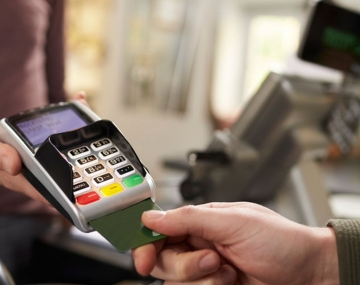Credit Card Processing
Odds are if you’re a business owner, no matter the size, accepting payment via credit card is a must. Every now and again one runs into the truly old-school Ma and Pa locale, and while it might be kitsch and cute to only accept cash, if someone wants to pay you money for something you should think of every single mechanism to accept said payment.
There are many ways credit card processing works. In-store, the customer can swipe the magnetic strip, “dip” their EMV chip card, tap an NFC-enabled card or process the card payment online via your website, a payment gateway, a mobile point of sale or virtual terminal. Once this is complete the information is sent to a processor who then communicates with the customer’s bank or financial entity via the card company they use (Mastercard, Visa, American Express, etc.).
Now, sometimes the transaction is approved/denied instantaneously, or it takes a handful of minutes. In the worst of cases, it takes more than a handful of minutes which makes for that awkward waiting time. The issue of processing time is a hot-button in the credit card world. With the introduction of EMV chips for example, processing times have slowed somewhat as the card must be dipped into the terminal and left there until the entire payment clears. Folks do get frustrated with this, but fraud and identity protection are heightened through this payment process which for the most part gives the customer a warm, piece of mind.
The worst-case scenario in all this are outages. A credit card outage essentially renders your payment process useless. The worst part however is not the outage itself but rather the loss in faith from your customers. Customers don’t understand inconveniences unfortunately, and as studies have shown, view outages as untrustworthy. When you’re seeking out partners ask about outages, frequency and the steps said partner has taken or takes in general when they occur.
Lastly, many businesses now accept payment online and that opens the door to a whole host of new mechanisms with which to process credit card and an array of payments. By far one of the most popular is Paypal. The benefits of Paypal is it’s easy to use, there are no monthly fees, and one can set up in-store payments. Transaction fees vary between 1.9% to 3.4%, and while shopping carts can be built from scratch to incorporate Paypal, the portal is flexible enough to be a standalone service.
Another interesting platform is 2Checkout, commonly used with startups and small businesses mainly because the integration with existing shopping carts is a snap. Like Paypal, 2Checkout is free of monthly fees but transaction costs can creep up into the 6% range. In fact, this is the most frequently commented downside of 2Checkout.
Do your due diligence however, there are several options now online which are growing by the day.


Comments:
Login to leave a reply